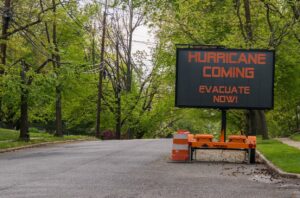Last October, one of our team members returned home from a vacation to find three inches of water in her basement. Unfortunately, her water heater, dryer, washer, and mini fridge all received a not-so-clean bath, but she was fortunate that the flood didn’t create additional hazards.
“During flooding situations, gas appliances may be stirred, shifted or broken away from the supply line, causing a dangerous gas leak situation,” says Paul Pirro, Manager Technical Support – Appliance Service, Gas Asset Strategy – at PSE&G. “Plus, any electric appliance or equipment can also shift or experience a pull on the connection or cord, causing an electric short-circuit or sparking.”
While flooding itself may not be preventable, Paul shared with us appliance safety tips to help you prevent storm damage and lower your risk of a home fire or worse!
Before a severe storm hits your area
One of the first steps to preventing a hazardous situation is to turn off the gas to appliances.
“During an emergency storm situation, it may not be possible to get immediate assistance,” says Paul, who has been in the utility industry for more than 40 years and recently received the American Gas Association’s Diamond Award of Merit. “Having shut-off valves in good-working condition would be recommended and preemptive.”
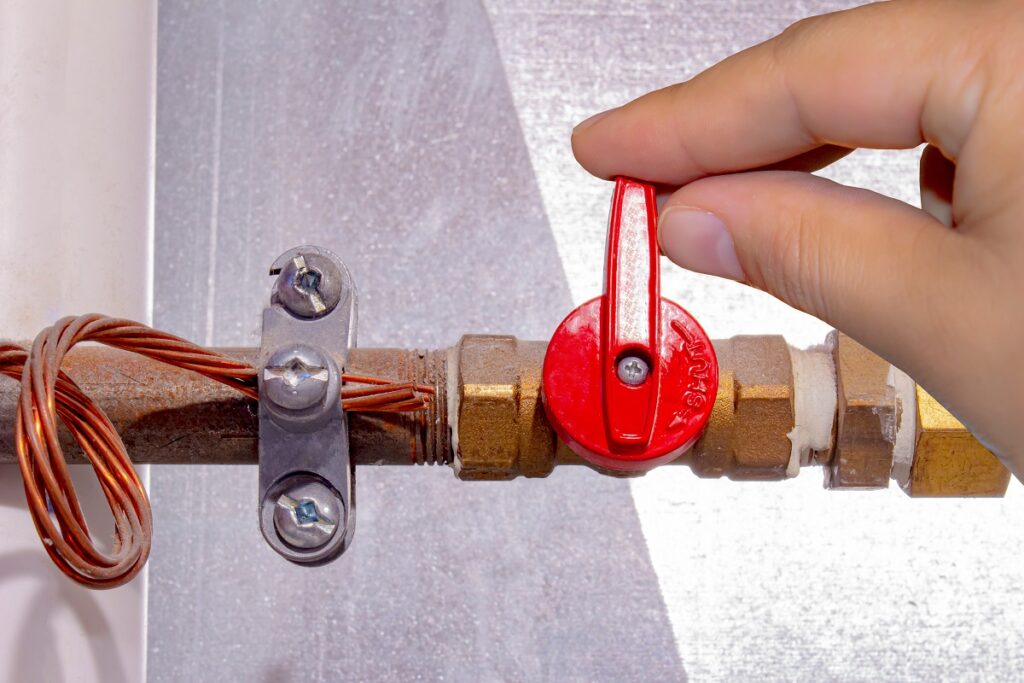
Newer gas valve shut-offs are easily turned by hand, but older valves may require tools to operate. If you have any questions, always contact a professional.
When it comes to electrical appliances, all non-essential appliances and equipment should be unplugged, shut off, and secured.
“Electric appliances especially can experience a surge once PSE&G turns on the electric after it’s off,” says Paul. “Even if an appliance is off, but it’s still plugged in, it can still experience a surge and possibly get damaged.”
If you live in an area prone to floods and storm damage, consider moving any appliances or equipment to higher levels of your home.
“Unfortunate folks who have experienced more than one flood event tend to move a lot of their appliances to a second floor,” says Paul. “A preemptive installation for this equipment to a higher elevation should be performed by a professional who is trained and qualified.”
What to do in the event of evacuation
You want to leave your home as safe as it can be. Therefore, it’s important to shut down or disconnect any unnecessary equipment or appliances that may get damaged.
As mentioned earlier,gas valves supplying individual appliances should be shut off if severe flooding is expected. Also, all exposed electrical connections should be unplugged or disconnected to prevent electrical shorting and damage.
In the event of evacuation, you can shut off the gas valve at the meter to minimize the chances of gas leaks occurring inside the home. Paul provides these quick steps:
- First, locate the gas meter inside or outside of their home. The inlet pipe should be next to it. (See diagram on PSEG website.)
- Turn the gas off at the main shut-off valve on the inlet pipe by using a 12-inch adjustable wrench or another suitable tool.
- Turn the valve a quarter (1/4) turn in either direction until the valve is crosswise (perpendicular) to the pipe.
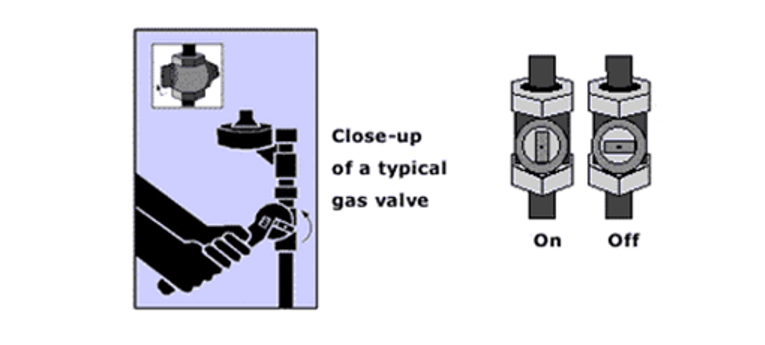
Also, secure furniture, boxes, and any potential clutter away from doorways and windows that could prevent access to appliances if rooms become flooded.
Dealing with home floods and electrical hazards
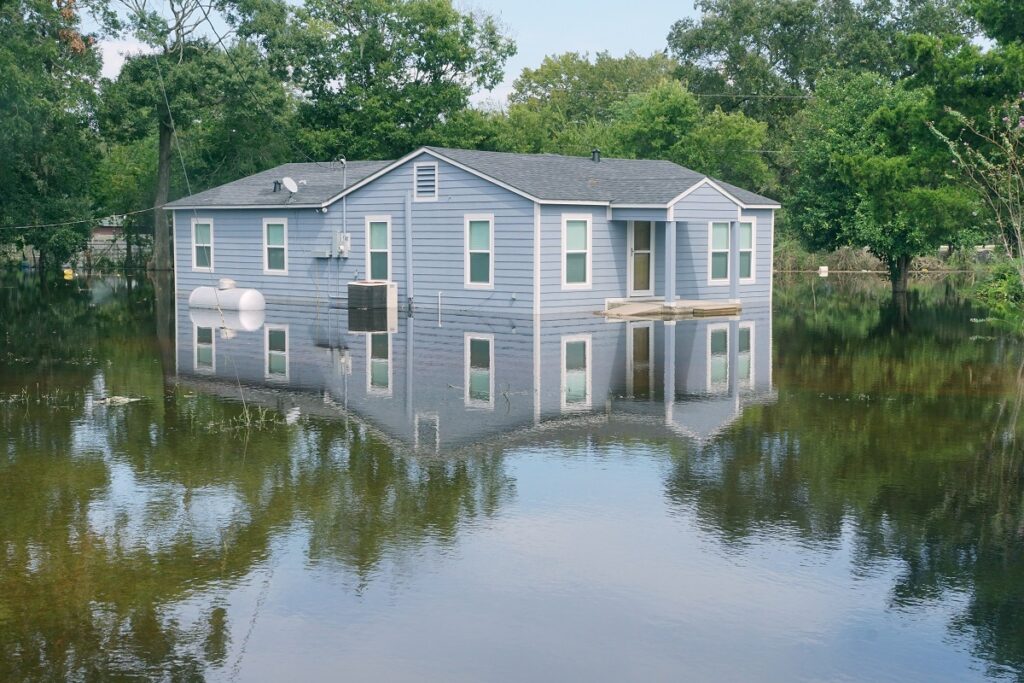
Your safety is first and foremost when it comes to dealing with floodwater. Never step into a flooded basement or any other room.
“Floodwater may be in contact with electrical outlets, appliances, or cords,” says Paul. “The water could be energized, causing shock or electrocution.”
Don’t touch appliances if they are surrounded by water and stay away from the breaker box in a flooded basement. The breaker box contains significant electricity for the whole house.
Once the floor is dry and no flood water is touching appliances or outlets, if possible, unplug or shut off all flooded equipment before electricity is restored.
“If it can be done safely, homeowners can turn off air conditioners or major appliances that may have been running when the outage occurred,” says Paul. “This will help avoid a sudden surge of power when electric service is restored.”
If your power is “on” after a flood event
There is a possibility of electric shock or electric short circuit, which can cause a fire. If the electric panel was affected by flooding, it must be inspected by a municipal inspector. Then it must be repaired, re-inspected, and turned on before gas service can be restored. (Municipal inspection rules vary so check with your town for precise instructions.)
“The key item is floodwater must be cleared before that inspection is performed,” says Paul. “Municipal employees will not perform this service if floodwater is still on the floor.”
If power is “off” after a flood event
The electric panel must be inspected by a municipal inspector before the power is restored. Once again, floodwater must be cleared for that inspection before gas service can be restored.
“We try to make it clear to customers that all electric issues have to be removed before we can consider introducing gas back to the home,” says Paul.
How to clear floodwater
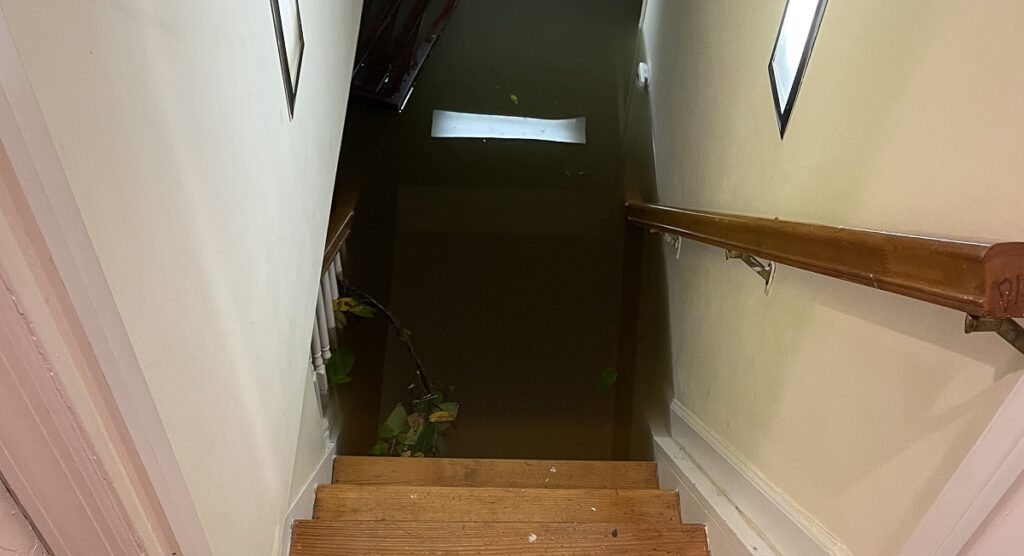
Since floodwater needs to be cleared in order to get service reconnected, how does a homeowner get the water out of their home?
“Sometimes the municipality, including the fire department and others, can help,” says Paul, “but homeowners have to be careful. If they take too much floodwater out, it can affect the foundation of the home.”
Some experts suggest pumping out a third of the floodwater each day for three days.
“If there’s water outside the home and inside – if there’s an inequality of pressures, the foundation can collapse,” warns Paul. “Also, just floodwater itself can affect the foundation.”
Appliance safety after a flood
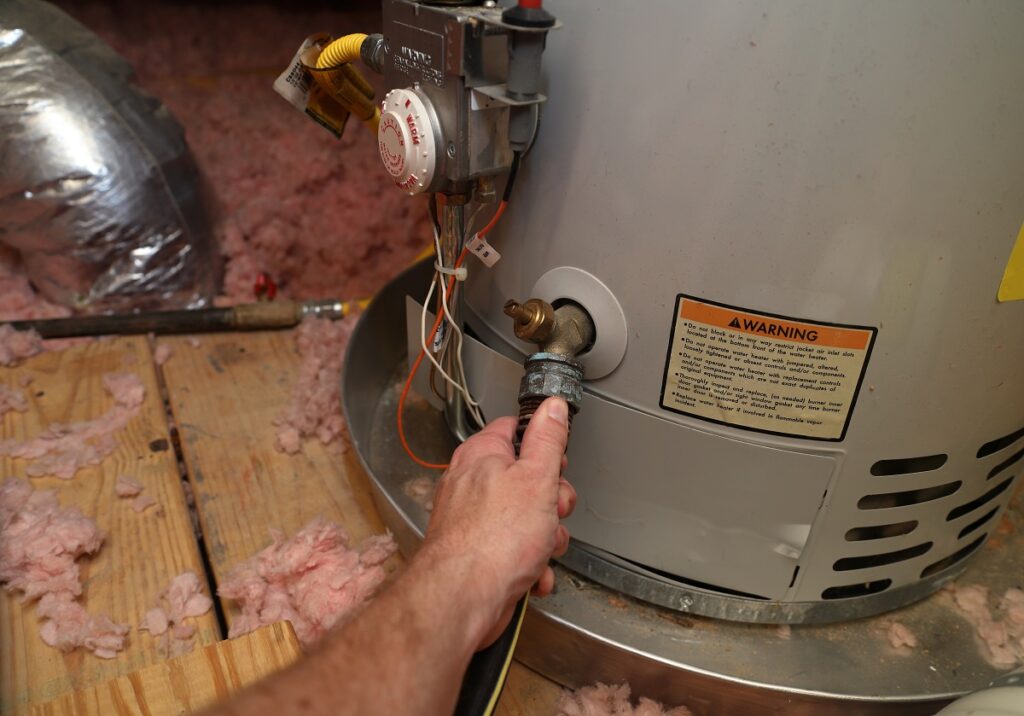
Appliances that have been exposed to water can short out and become a fire hazard. A trained service professional can determine how high the water level mark reached and identify any specific appliance hazards.
“Rusting of ground connections and pitting of wiring harnesses and connections can cause exposure to electric shock and malfunctioning of the appliance,” says Paul.
You should replace your appliances or have them inspected before attempting to use them. Contact your the manufacturer(s) of your appliances for inspection and further instructions.
Listening to professionals is important as even appliances that work now can create hazardous situations in the future.
“Heating controls exposed to floodwater can fail even though they tested OK after being dried and placed back in operation,” says Paul. “This is especially true for electromechanical components that may short out or fail after internal corrosion develops.”
That’s why any controls exposed to floodwater must always be replaced.
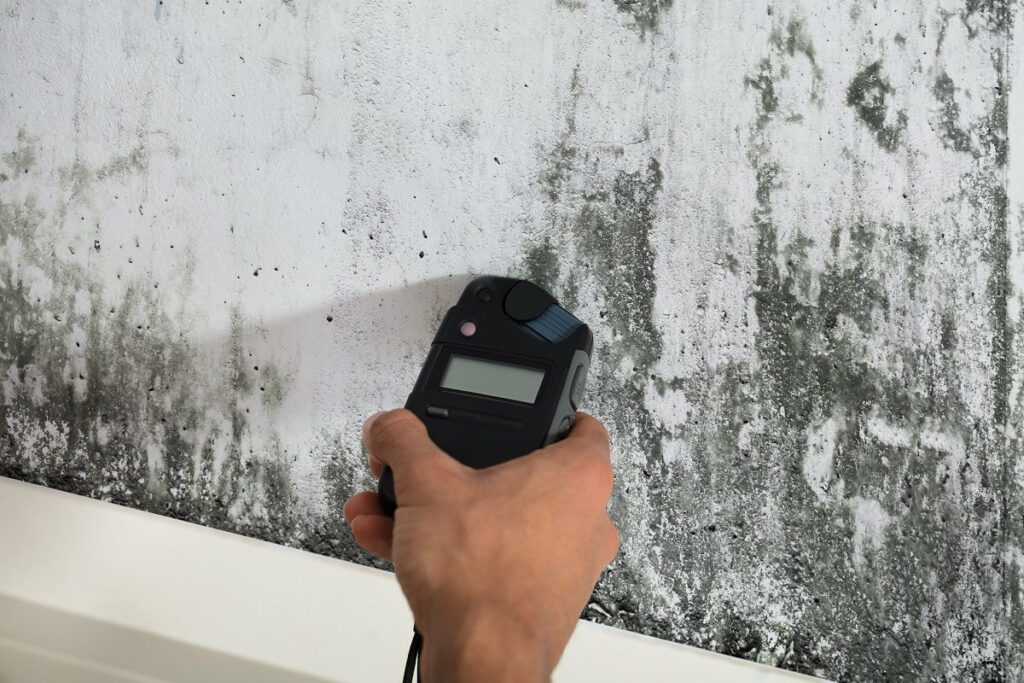
All newer appliances contain circuit boards and electrical components that get damaged easily by coming in contact with floodwater. They would need replacement if flooded or exposed to surges.
Gas-fire equipment contains safety controls that, after being exposed to floodwater, can potentially create an overheating or fire condition.
“PSE&G will not restore gas to water heaters with controls that have been affected by floodwater,” says Paul. “Flooded units must be replaced, and every water heater manufacturer makes this point.”
Since the 90’s, the technology of water heaters has changed, and now all components are together tied to the gas valve.
“There’s really no way of resurrecting it,” says Paul.
Anything that came in contact with floodwater may have also been exposed to stored chemicals, raw sewage, and other unknown contaminants. Mold can grow on any surface that was exposed to floodwater.
“Homeowners should also be aware of health-related risks that are associated with floodwater,” says Paul. “If a refrigerator is off and has been affected by flooding, there’s a possibility of getting mold inside the refrigerator and freezer. In that case, the homeowners may not want to use that again.”
PSE&G provides customers with detailed guidance on how to deal with flooding or other safety related emergencies at www.pseg.com
A better way to manage your home
Homeownership can be hard, but it doesn’t have to be. vipHome.app can help. In less than four minutes, you can be introduced to a new way to home. Simply download the app, register your home, and enjoy a simplified homeownership experience.



